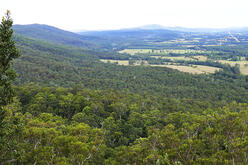Minister of Health David Clark is making changes to Drinking Water Standards which help keep New Zealanders safe from waterborne illness.
“The Havelock North Inquiry sent a clear message that work was needed to improve the standard of drinking-water in New Zealand.”
“The bottom line is public safety. People expect when they turn on the tap, the water they are drinking is safe, and that is a reasonable expectation which should be met.”
David Clark said many of the changes he is making, which will take effect on 1 March 2019, are clarifications or corrections, “but there are two changes which will significantly improve the ability to test and respond to the presence of harmful bacteria such as E.coli”.
“The first requires water suppliers to routinely monitor the total amount of coliform bacteria in water. A high reading doesn’t necessarily mean drinking-water is unsafe, but can serve as an indicator of potential issues.
“The other change I am considering is about testing for E.Coli. At the moment drinking-water suppliers test to determine if E. Coli is present in water. They then carry out a second test if the initial test is positive. This means a delay of up to two days before authorities know if there is a contamination.
“I’m considering a proposed change which will require testing to count the numbers of bacteria. This should eliminate the need to carry out a second test, as the initial test will be able to determine both the presence of these bacteria and also how prevalent they are.
“There will be a consultation on changes affecting testing for E.coli and other coliform bacteria, which will include talking to testing laboratories which don’t provide this form of testing at the moment and may be affected by these changes.
“The Havelock North Inquiry recommended I make this change without consultation, however I believe it’s important to speak to the laboratories which will do this testing to ensure they will have the capacity to provide this service into the future.
“A comprehensive review of the Standards is also being carried out, led by an independent Drinking-Water Advisory Committee. I expect proposed changes from this review to be released for public consultation by mid-2019.”
Meanwhile, a Cabinet paper released today lays the groundwork for changes to make drinking-water safer in the future.
The paper , jointly released by the Minister of Local Government Nanaia Mahuta and the Minister of Health, details proposals for a system wide reform of regulation of drinking water, along with a new risk management regime for sources of drinking-water.
“This paper provides the public with a view into work being carried out by the Government on improving all of our water systems.”
“While the Three Waters Review is being led by my colleague Hon Nanaia Mahuta, the responsibility of drinking-water – of which some of the work is identified in this paper – lies with me.
“The Ministry of Health’s work to improve drinking-water safety in New Zealand has ramped up significantly in response to the Havelock North Inquiry reports.
“I’m encouraged by the work carried out to date by public health units, local government and drinking water suppliers.”
“The first reading of the Health (Drinking Water) Amendment Bill earlier this month is also a step toward removing regulatory barriers to allow improvements to drinking-water safety.
“This Bill will allow the Government and drinking-water sector to be more proactive and future focused, as well as make it easier for more work to be done to implement the recommendations of the Havelock North Inquiry,” David Clark said.







